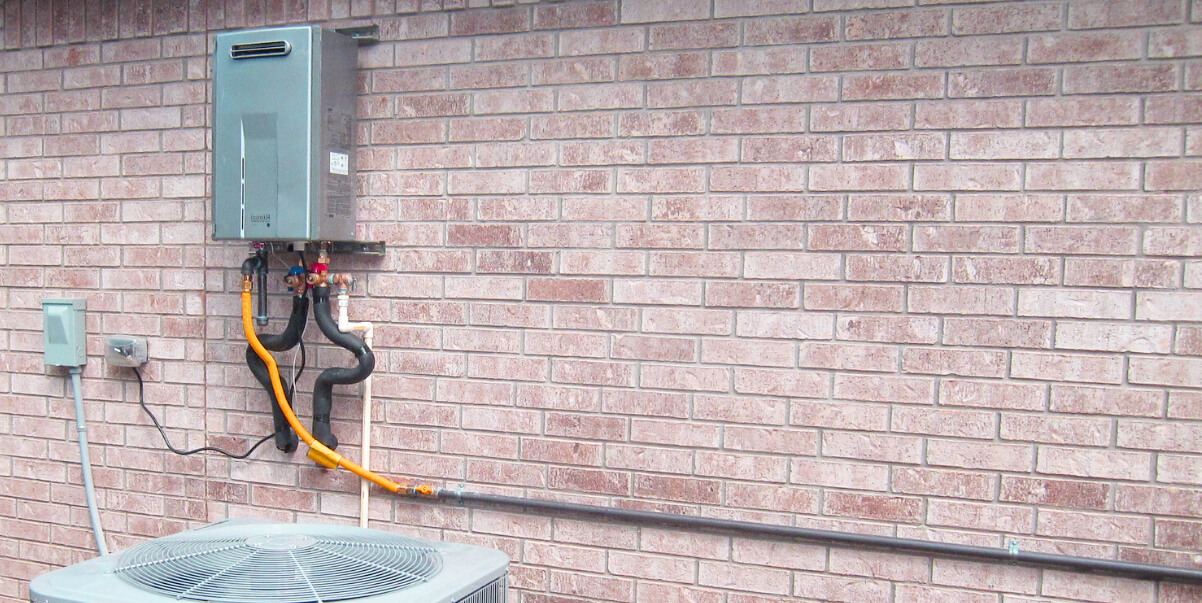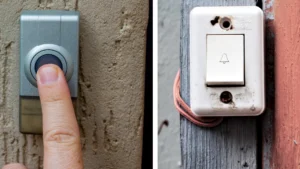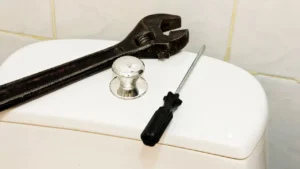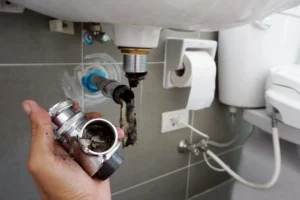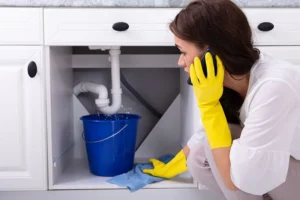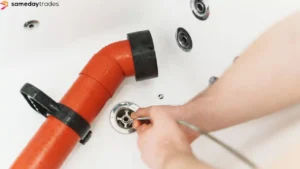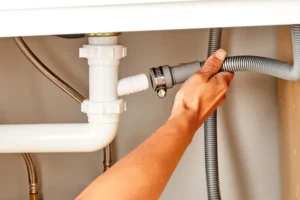If the water tank at home feels like an arch-nemesis because you run out of water every time you need a hot shower, we understand your frustrations!
After all, what’s the point of taking up all that space if it’s not going to be of use when you need it the most? We hear you and that’s why we’ve got a one-stop solution to all your problems: a tankless water heater.
If you are here because you’re already contemplating investing in one and want to know if it’s worth the hype and investment, it absolutely is! Going further, we’ve got this guide to tell you all the deets and benefits of this unit.
So, let’s begin right away!
What Are The Benefits Of A Tankless Water Heater?
With a tankless system, you save space, money and energy in the long-run – what more could you have asked for? However, that’s not it! Here are all the benefits of a tankless water heater, listed in one place for your convenience. Keep on reading…
1. Compact Design
Let’s face it – water tanks are an eyesore, no matter where you place them. Besides, they take up a tremendous amount of space, be it in the terrace or basement. Redesigning the space around a bulky unit like this can be quite a pain! After all, there are so many things that your space is better suited for, especially if you live in a small house.
With a tankless water heater, you wouldn’t have to put back all the attractive utility items you pick at a store because of a space crunch.
2. Instant Hot Water Supply
Imagine the relief of turning on the faucet on a chilly winter morning and being met with hot water! With a tankless water heater system, this luxury is no longer limited to the first person who takes a shower in the house.

The tankless appliance
Just turn on your unit and in less than three minutes, you’ll have a continuous supply of simmering water at your disposal.
Besides, there is no lag time in a tankless system. In a tank-heating system, water takes time to reach the faucet because the unit is placed at a distance. But, since a tankless unit is compact, it can be placed close to the faucet, thereby reducing water loss and lagging.
3. Longevity
An electrical appliance that guarantees longevity is a rare sight, which is why tankless water heating systems are such a customer-favourite. They are long-lasting and come with better warranty coverage than traditional systems with tanks. So, in case they malfunction early on, you’ll have the warranty to back it up.
Not just that, tankless heating systems can last up to 20 years – yes, you read that right! If maintained well and frequently serviced, this unit has an unrivalled lifespan.
While traditional water heaters carry a 5-6 years warranty and last for merely 10 years, a tankless system goes beyond that and provides its users with a hassle-free experience for much longer. Thus, this makes them a cost-efficient option in the long run.
Furthermore, several manufacturers even offer replacement warranties. However, you need to add a water softener to the unit and service it annually for the warranty to hold good.
4. Energy-Efficient
Rising electricity bills are one of the primary concerns of any homeowner, and they’re always on the lookout for energy-efficient appliances. So, why not consider investing in a tankless water heater? After all, they are the best way to get hot water while also saving energy.
Unlike a traditional water tank, which needs to fill the reservoir and takes anywhere between 30 and 40 minutes, a tankless unit operates on-demand. They don’t have a reservoir that needs refilling. Thus, there is a low rate of standby heat loss.
Besides, point-of-use systems installed at individual outlets are even better at energy conservation. Although you won’t save a significant amount every month, in the long-run, you’ll be saving hundreds of dollars.
In fact, people who’ve switched to a tankless water heater save up to 22 to 30% annually. Combined with its excellent warranty and durability, it’s an unparalleled solution!
5. Eco-Friendly
More and more homeowners are replacing their old appliances with eco-friendly options. Tankless water heaters are an excellent choice, as they emit a low carbon footprint. This is because many models can operate on natural gas. Even while operating on electricity, they’ve proven to be energy-efficient since they minimise standby water loss.
Today, newer models have an Energy Star certification. Besides, manufacturers use recyclable parts in their construction, making it an economical and eco-friendly purchase.
In addition to that, they’ve got a longer lifespan and unlike traditional tank models that end up in landfills within a few years, the tankless variant can last for over two decades.
6. No Rusting
Tank-based water systems accumulate rust over time, which results in water contamination. However, you don’t encounter this problem with tankless versions because they don’t have to deal with sitting water in the tank. They produce water on-demand, and there’s no water left in the system at any point.
Since water is not in constant contact with metal, it minimises the chances of rusting or corrosion.
7. Two Options Available
When it comes to tankless water heaters, you get both electric and gas-powered models on the market. If your apartment doesn’t have a naturally occurring gas line facility, you can opt for an electric model. There is no need to reroute gas lines.
However, if you wish to purchase a gas-powered model instead, feel free to do that, and a technician will re-route the gas line for you.
8. Safety
The tankless water heater is safer than traditional tanks. Households with kids are always on the lookout for safe appliances, like a tankless water heater. It minimises the chances of overheating or exploding. Since water is available only when you need it, there is no storage system, eliminating the threat of overheating.
Besides, because there is no storage system, there will be no leakage of water. And even if a leak occurs, it would result in less water loss.
Thus, no more floods because of a ruptured tank. With a tankless unit, you can keep all your fears at bay.
Drawbacks Of Tankless Water
In spite of their many advantages, tankless water heater have a few drawbacks. To help you make an informed choice, we’ve listed several benefits and now it’s time to draw attention to a few minor flaws. So, here they are.
1. High Initial Costs
Tankless models have a longer lifespan. As a result, they are significantly more expensive and deservedly so. To put things in perspective, the cost of buying and installing a tankless model is double that of a tank-based one, sometimes even more.

You will need a water softener system for this unit, which adds to the initial costs. Besides, the installation fee charged by technicians is also quite hefty.
However, they prove to be relatively cost-efficient in the long-run and save both water and electricity. So, it’s a one-time investment for years of hassle-free service.
2. Limited Supply
Tankless models cannot provide an unlimited supply of hot water at different outlets simultaneously. With it, a dishwasher and a washing machine cannot operate concurrently. Similarly, it cannot provide hot water in two different bathrooms at the same time.
So, to overcome this difficulty,
3. Additional Maintenance Costs
As we’ve mentioned earlier, the warranty of a tankless water heater is only valid if it is maintained yearly. The system should be flushed out and serviced annually to prevent calcium buildup.
The yearly maintenance cost, though not much, takes away from the overall savings.
Final Words
That’s all, folks! Those were all the reasons you should consider while opting for a tankless water heater system. It’s imperative that you carefully weigh the pros and cons before making a purchase, given how expensive the unit is.
Having said that, its many advantages and space-saving technology make it the optimal choice for small families or individuals living in condominiums. It is perfect to meet the day-to-day demand for a family of four. In case you need more water supply, consider installing multiple units in different parts of the house.

